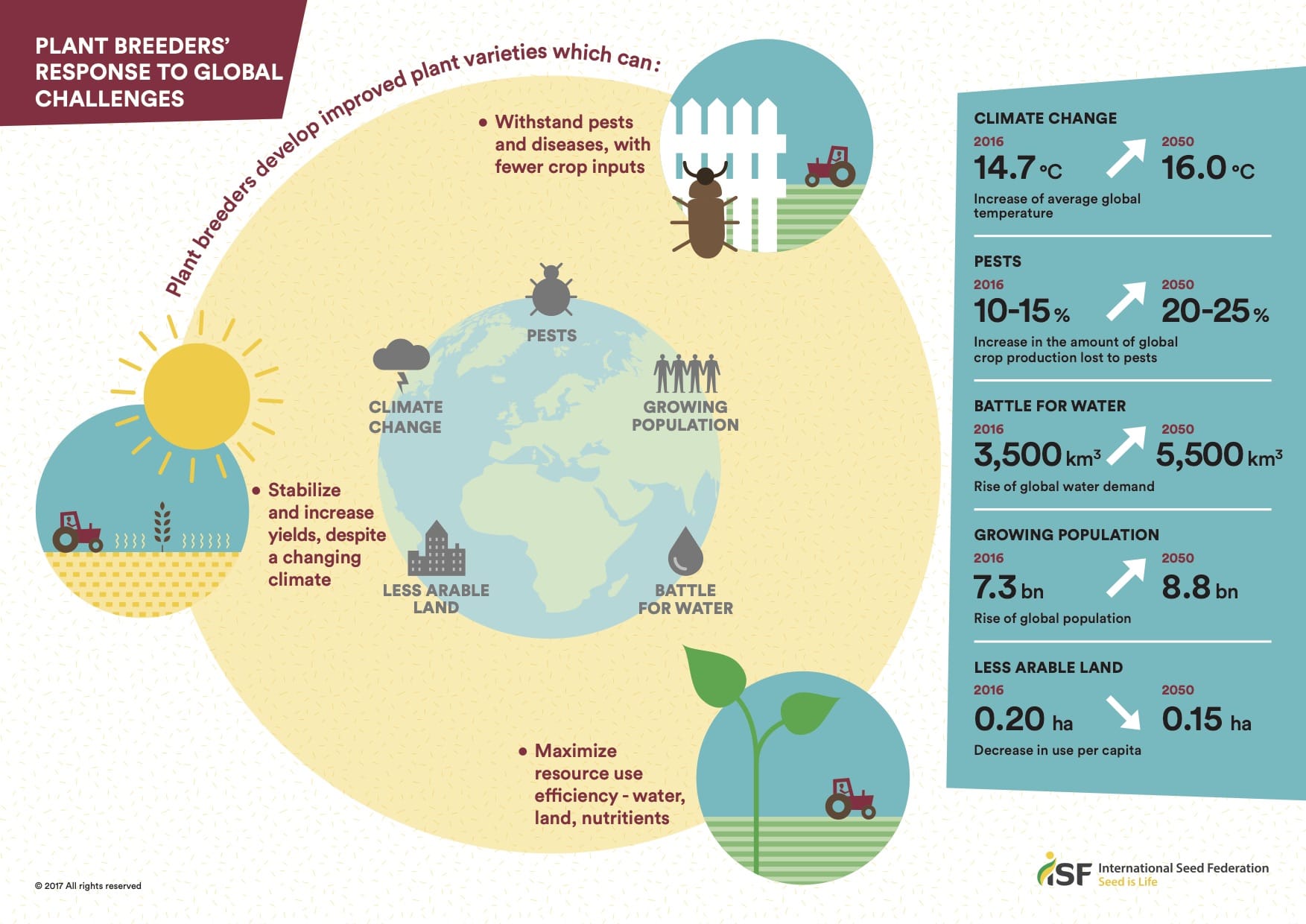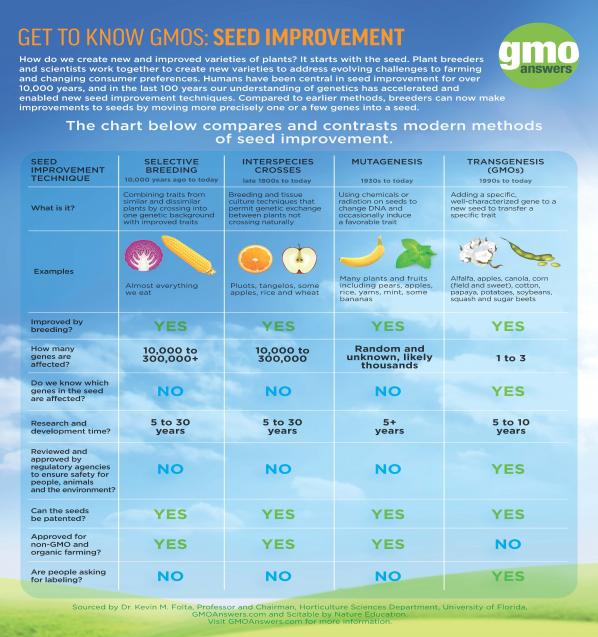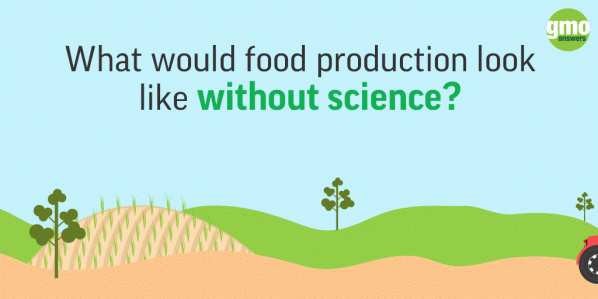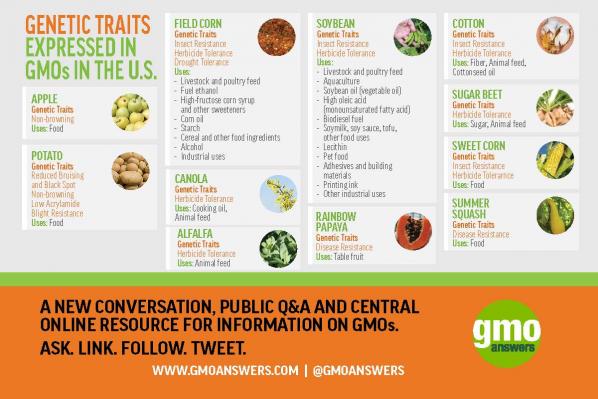Food Security and a Global Pandemic: What You Need to Know
At GMO Answers, we’ve always been committed to responding to consumers' questions about GMOs and how our food is grown. Our goal is to make information about agriculture and how your food is grown easier to access and understand.
And now, during this time of the coronavirus, you may be wondering what impact the COVID-19 global pandemic could have on you, your food supply, and your future. We already know that the virus is affecting workplaces, our social behavior, and our basic habits, but what’s the bigger picture about food security, food waste, food loss, sustainability, food availability and most importantly, the food supply? One New York Times article has already claimed that panic buying has hit the consumer seed market.
We’ve put together a few resources to help you through these challenging times in the hopes of informing and setting your mind at ease. Farmers around the world are working through this crisis and the transportation and distribution systems, from truckers to freight rail, are operating at full capacity to make sure you have access to healthy, safe, and affordable food. We hope these expert resources give you a bigger picture of how our food is grown, the sustainability of modern food systems, and what steps are being taken so that your personal life will be minimally impacted when it comes to your food.
You Can Stop Worrying About a Food Shortage in 2020
Most of us have been told since we were young that when faced with a crisis, it's important not to panic. Of course, now that we're experiencing the COVID-19 pandemic, many of us are having trouble following this advice. One place our collective panic is glaringly obvious? The grocery store. Award-winning food magazine Eating Well asked experts whether there was any real threat of a food shortage, and what individuals can do to help prevent one. They all said that a food shortage is extremely unlikely, provided we all take proper precautions. Click here to find out what their experts say.
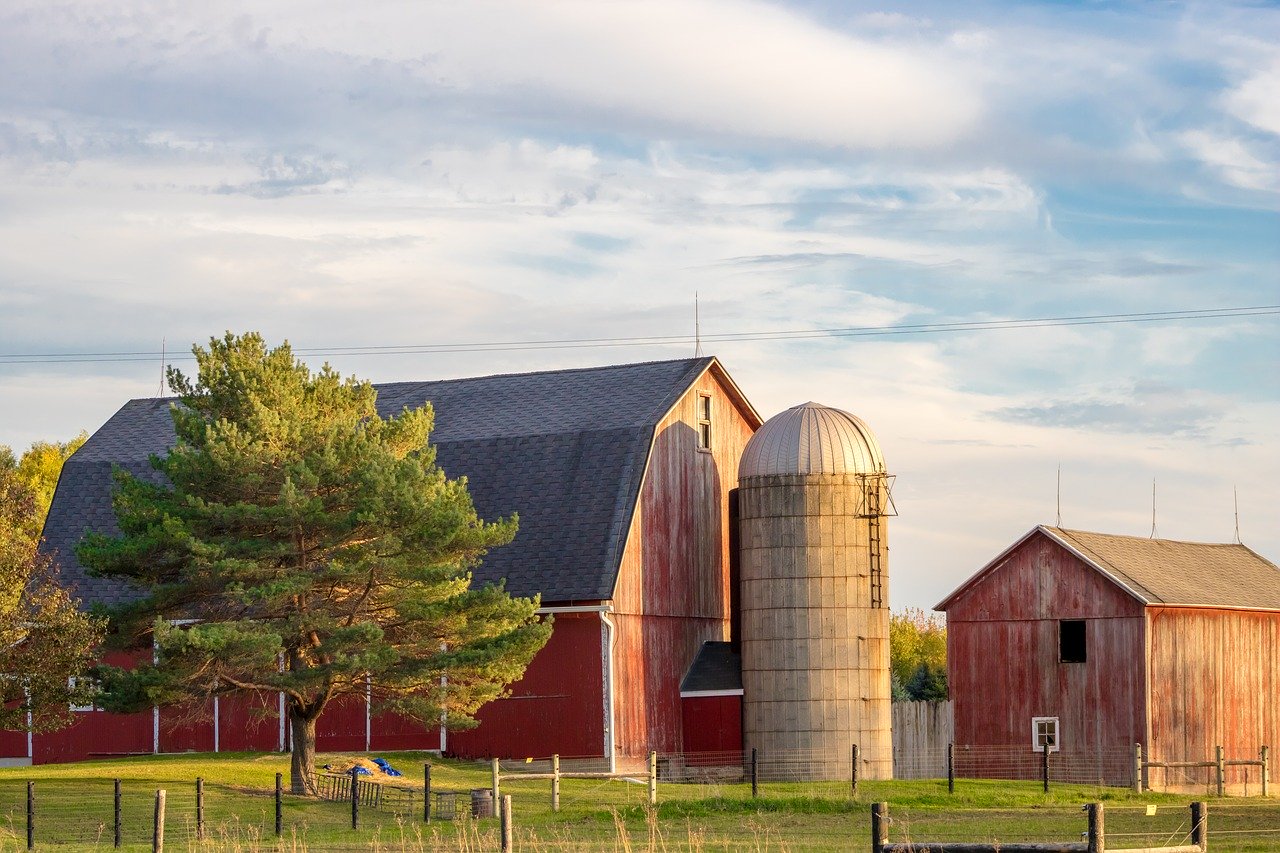
Food Security in a Global Economy: What Will It Take to Make It Happen?
Despite the challenges posed by population growth, rising urbanization, changing diets, and climate change, food security is still fully achievable. For this investment to make an impact, policies must address six key issues:
- Agricultural Productivity
- Global and Local Trade
- Sustainable Resource Management
- Improved Infrastructure
- Rural Poverty
- Fostering Innovation
GMOs Help Us Combat Global Food Security and Sustainability Challenges
Every day, farmers around the world use GMOs to help combat threats to food and the environment. Whether helping to protect crop yields against plant diseases, weeds, pests, or to reduce water use, GMOs are one of modern agriculture’s many innovations that allow farmers to grow more food with fewer resources. Feeding the world’s growing population through sustainable means is a big goal, but by using GMOs to help increase agricultural productivity and make farming more sustainable, it is a goal within reach. Learn more about GMOs and global food security in a blog post from GMO Answers.
How Seeds Enhance Our Quality Of Life
Humankind has been breeding plants since the dawn of plant domestication. Roughly 12,000 years ago they started selecting seed of the best plants for planting the next crop. Fundamentally, plant breeding has not changed. Humanity simply have access to new tools and a better understanding of how the plant operates. Today, improved varieties can be developed more precisely, ensuring that the seed industry meets the global challenges we face as a global society. Find out how the American Seed Trade Association helps make sure everyone gets the seed they need.
United Nations Q&A: COVID-19 Pandemic – Impact on Food and Agriculture
The United Nations' (UN) Food and Agriculture Organization (FAO) has put together a frequently asked questions (FAQ) page on the COVID-19 pandemic and its impact on food and agriculture. It answers questions such as “Will COVID-19 have negative impacts on global food security?” and “How will the pandemic affect food demand?” Click to read through all of FAO’s questions and answers.
Top 5 Tools For Fighting Food Insecurity
As the population rises and the challenge of climate change intensifies, farmers will need new tools to keep up with the growing demand for food. Here are five ways that plant science will help meet the challenge of bringing nutritious, affordable food to everyone, from CropLife International.
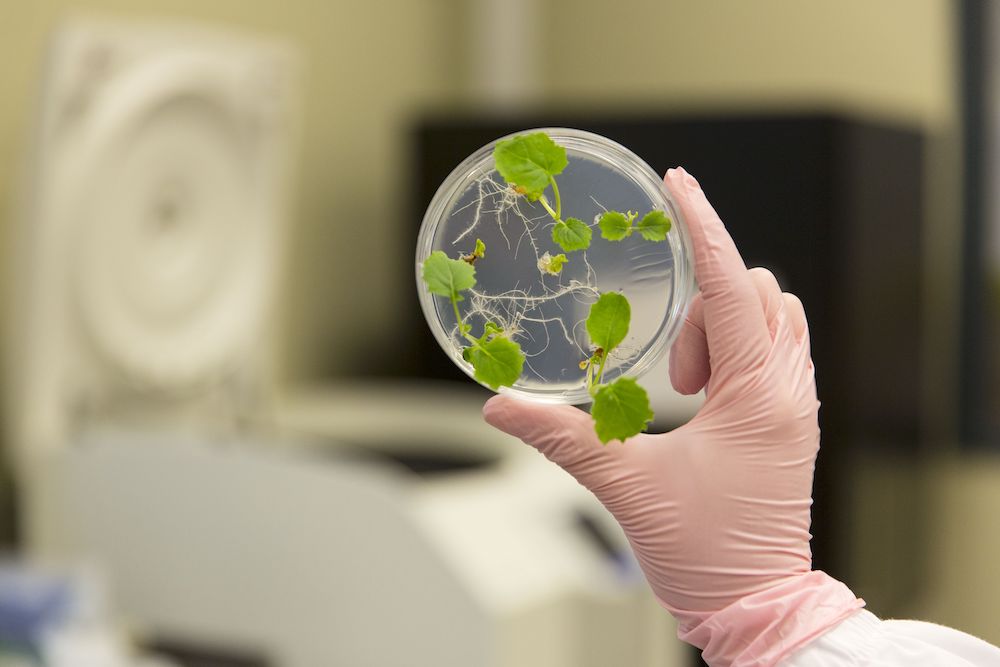
COVID-19: Trade Restrictions are Worst Possible Response to Safeguard Food Security
As COVID-19 spreads around the globe, fears of a deep global recession are mounting. Some also fear that food supplies may start running short, especially if supply chains are disrupted. While we should take these concerns seriously, they should not be overstated either, especially not for basic staples such as rice, wheat, and maize. Global markets are well supplied, stocks are healthy, production of key staples is unlikely to be disrupted, and prices have remained relatively stable. Learn more about the global food economy in this post from the International Food Policy Research Institute (IFPRI).
The COVID-19 Crisis and Food Systems: Addressing Threats, Creating Opportunities
With the spread of COVID-19, we find ourselves plunged into a global health crisis. By most accounts, we are only at the early stages of the pandemic, so we know it will most likely permanently reshape economy, society, and politics. Pre-COVID-19 crisis, many families all over the world already spent a lot of time and energy thinking about getting access to food. For many others, simple access to shops has also become very worrying and needs swift attention. Even the wealthy are increasingly thinking about food access. Find out what experts think about addressing these threats and how we can create opportunities with this article from the Global Alliance for Improved Nutrition.
Food (Waste) Fight: Combating Global Food Waste with Unorthodox Solutions
Three billion tons of food, which represents one-third of all food produced for human consumption, is lost or wasted globally, according to the UN Food and Agriculture Organization. Food waste is a problem — and it’s a problem we need to address now. But due to public misconceptions around the safety and environmental benefits of GMOs, we aren’t using them to their full potential. We need to continue to combat misinformation about GMOs so that we can fully utilize this innovative technology to address food waste and other global environmental crises. Learn more about how GMOs can help address food waste and loss in this Medium blog post.
